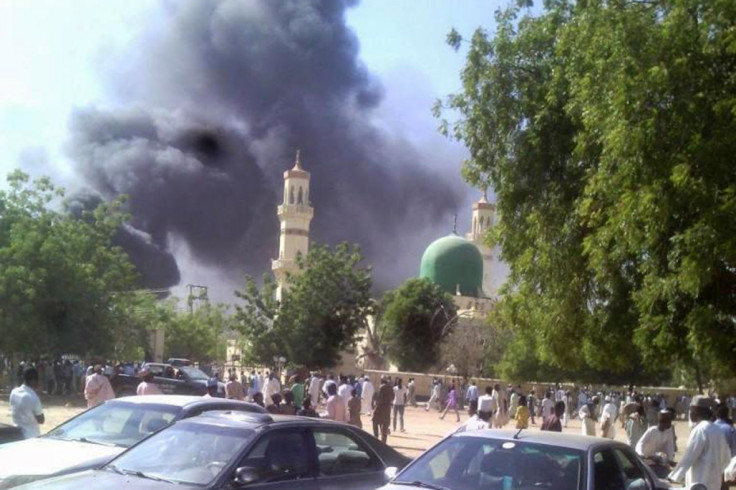Nigeria Boko Haram Terror: '200 Killed' in Kano Mosque Bomb and Shooting Massacre

Boko Haram terrorists sprayed fleeing Muslim worshippers with bullets as they fled the main mosque in Kano, following a multiple suicide bombing attack at Friday prayers, slaughtering up to 200 people.
Mansur Liman, head of the BBC's Hausa service, told BBC News: "Although not official at the moment it is believed around 200 people have been killed in this attack. Somebody who went to the nearby hospital told us he has never witnessed anything as horrible as this."
He added that the aim of Muslim fundamentalist Boko Haram is "to cause maximum havoc and prove they are very strong."
The mosque, in northern Nigeria's largest city, which was targeted by the group is situated next to the Emir of Kano's palace in the city. This may provide a motivation for the attack as he serves as an authority figure against radical Islamism.
Earlier this month, the Emir, Sanusi Lamido, gave his support to vigilantes fighting against the terror group and called on more people to defend against their attacks, saying they should "acquire what they need" to protect themselves.
Lamido regularly prays at the Central Mosque in Kano but is currently in Saudi Arabia, according to local media.
A staff member at the palace and eyewitness told Reuters: "After multiple explosions, they also opened fire. I cannot tell you the level of casualties because we all ran away."
The terror group have carried out a wave of attacks in northern Nigeria in their quest to establish an Islamic caliphate in similar fashion to that of the Islamic State [IS] in Iraq and Syria.
Boko Haram have conducted a number of attacks on their fellow Muslims in the country's north, for example a massacre at a mosque in Maiduguri last year, contradicting assumptions that the group only target Christians or "non-believers".
It is believed that the group target fellow Muslims because they do not wish to follow their extremist cause of creating a caliphate in northern Nigeria.
The group also believes that it will replace regional religious leaders - who they see as corrupt and too close to Goodluck Jonathan's secular administration - if they are able to kill them.
According to Human Rights Watch, the militants have killed at least 2,053 people since the beginning of 2014, but researchers at the John Hopkins University School of International Studies estimate that 7,000 people have been killed in the 12 months between July 2013 and June this year.
© Copyright IBTimes 2025. All rights reserved.






















